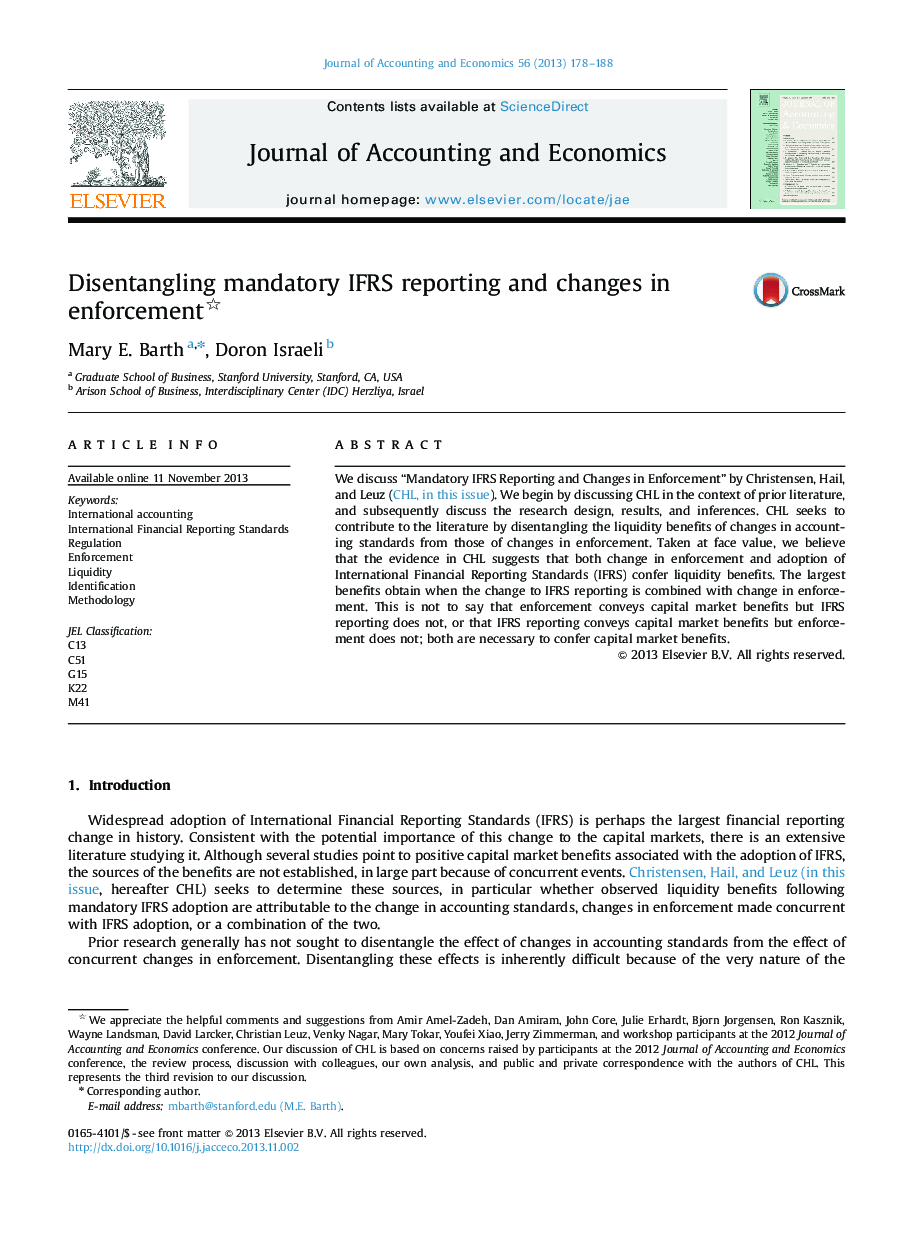| Article ID | Journal | Published Year | Pages | File Type |
|---|---|---|---|---|
| 5086700 | Journal of Accounting and Economics | 2013 | 11 Pages |
â¢Discuss Christensen, Hail, and Leuz (CHL, in this issue).â¢Discuss CHL's relation to literature, research design, results, and inferences.â¢CHL seeks to distinguish liquidity benefits of IFRS and enforcement changes.â¢At face value, CHL's evidence suggests both are needed for liquidity benefits.
We discuss “Mandatory IFRS Reporting and Changes in Enforcement” by Christensen, Hail, and Leuz (CHL, in this issue). We begin by discussing CHL in the context of prior literature, and subsequently discuss the research design, results, and inferences. CHL seeks to contribute to the literature by disentangling the liquidity benefits of changes in accounting standards from those of changes in enforcement. Taken at face value, we believe that the evidence in CHL suggests that both change in enforcement and adoption of International Financial Reporting Standards (IFRS) confer liquidity benefits. The largest benefits obtain when the change to IFRS reporting is combined with change in enforcement. This is not to say that enforcement conveys capital market benefits but IFRS reporting does not, or that IFRS reporting conveys capital market benefits but enforcement does not; both are necessary to confer capital market benefits.
